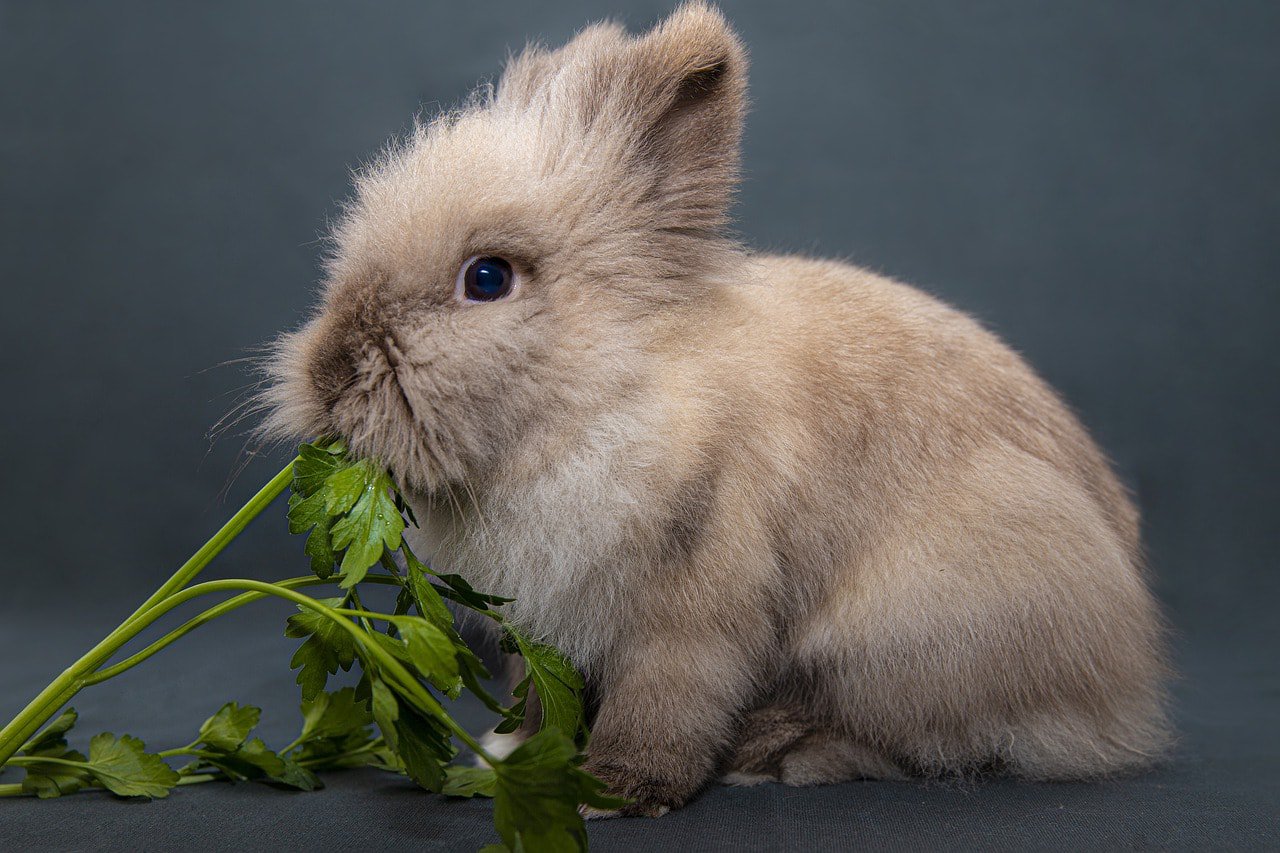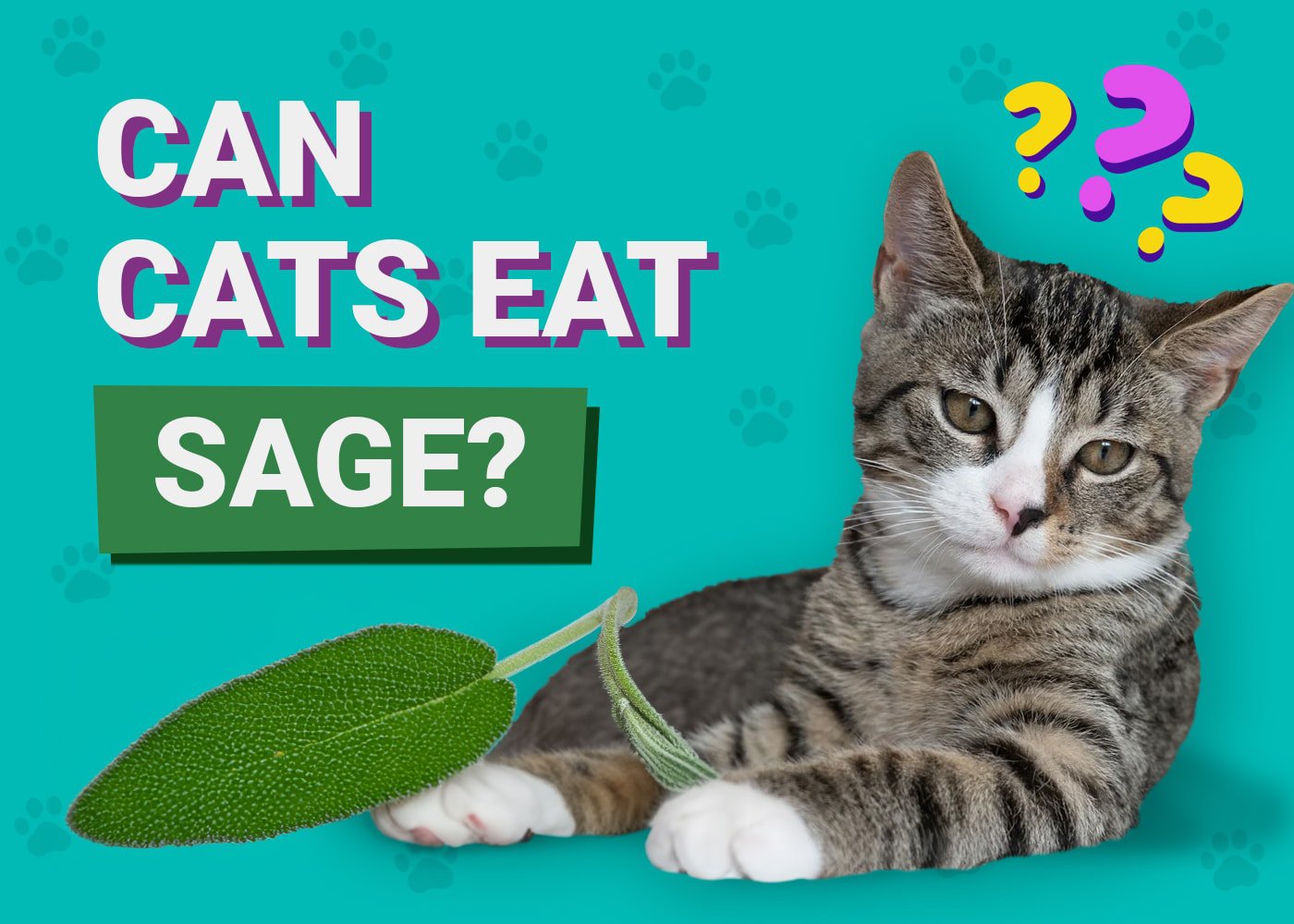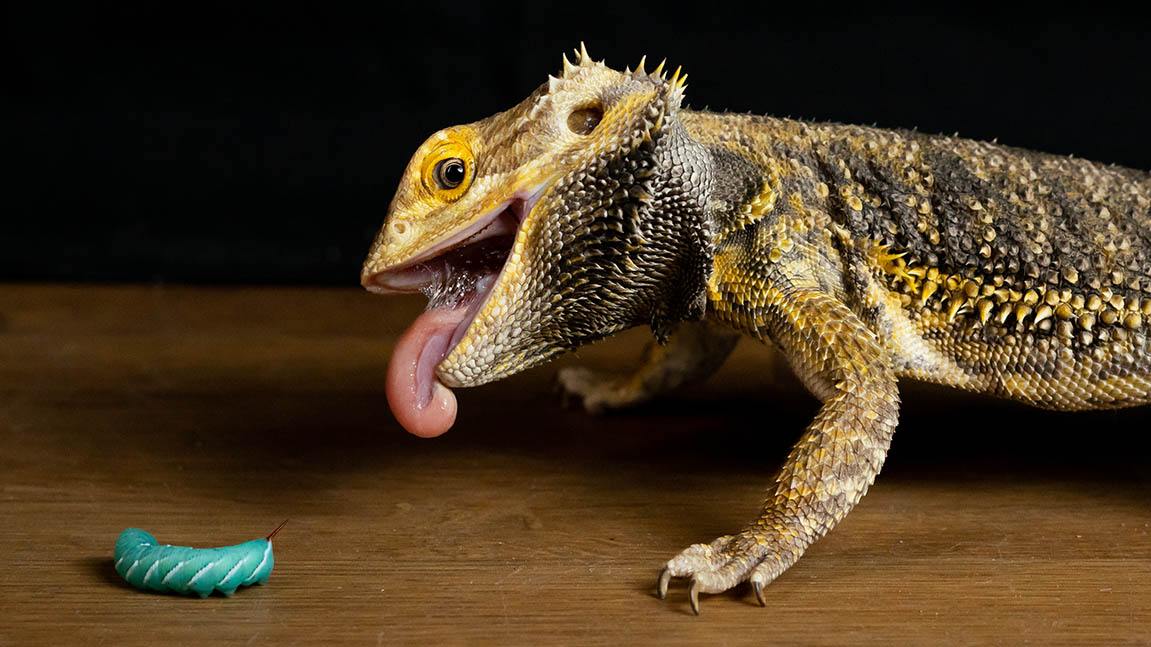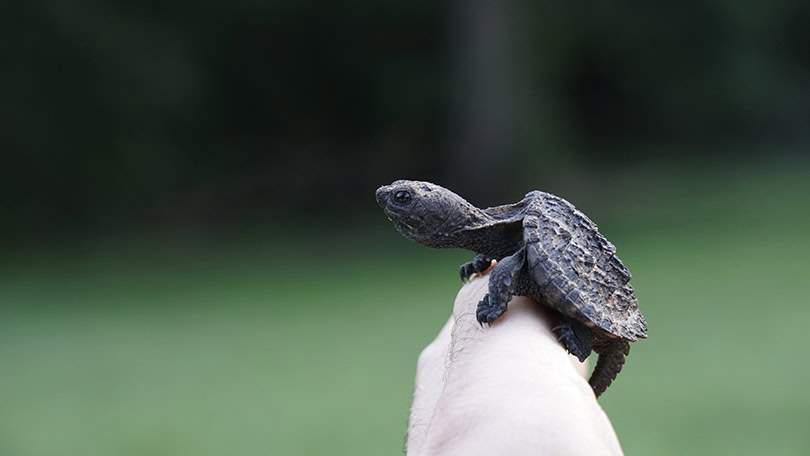VET APPROVED

The information is current and up-to-date in accordance with the latest veterinarian research.
Learn more »Click to Skip Ahead
You may have observed rabbits eat foods that aren’t “typical” of the species’ diet. However, rabbits are considered herbivores because their digestive systems are specifically optimized for vegetables and herbs.
This is not to say that rabbits won’t sneak a meat-based treat like a strip of crunchy bacon in their mouths. They do, especially if they are hungry. This is far from ideal and might put your rabbit at risk.
In this post, we will explain why and what you need to know about a rabbit’s diet, which food is safe, what’s not, and why they should only be following a plant-based diet.

What to Feed a Rabbit: A Plant-Based Diet
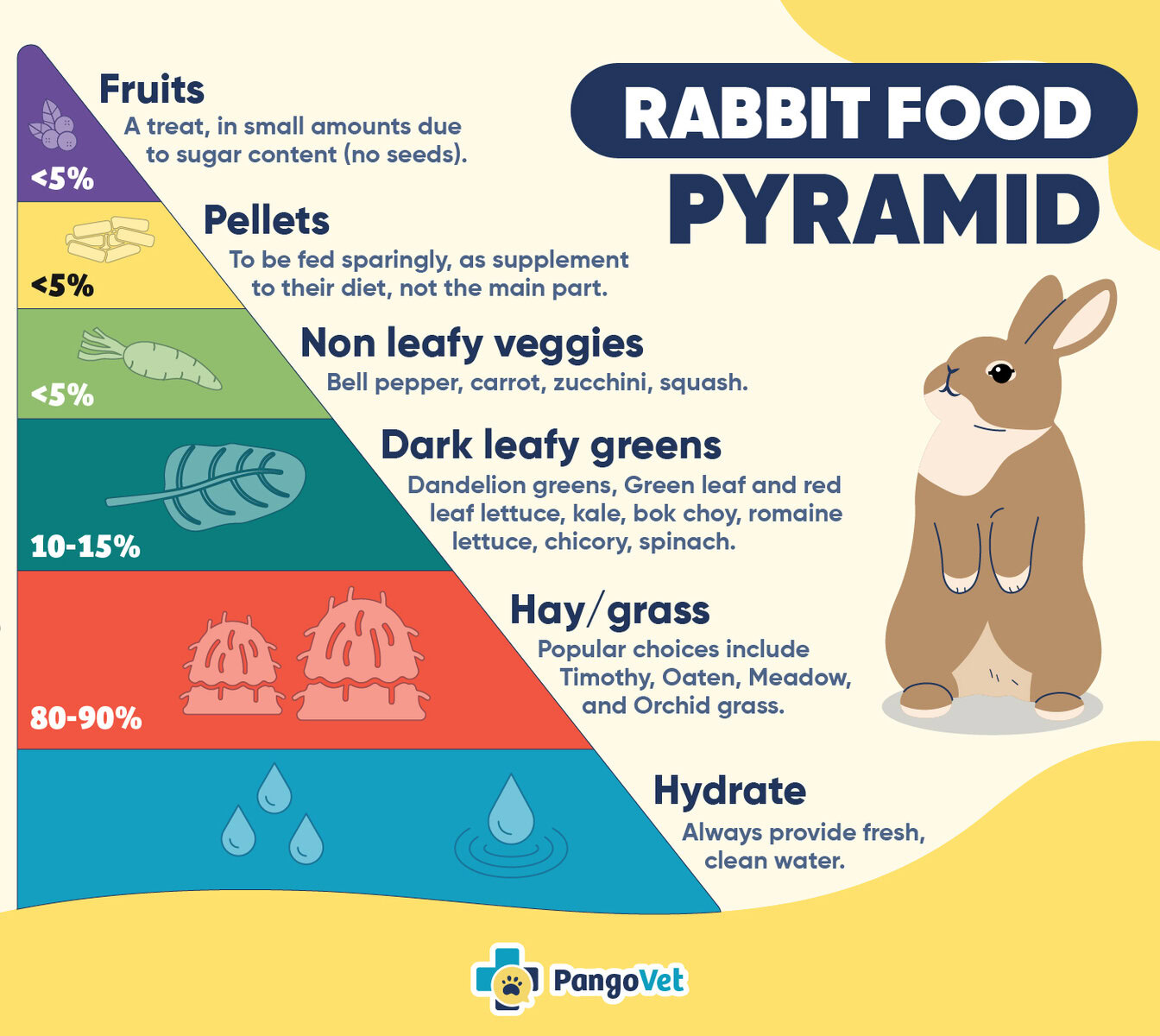
Rabbits are classified as obligate herbivores, which means that they MUST only consume plant and herb material in their diet to thrive and stay healthy.
There are various reasons why these creatures have evolved to rely strictly on a plant-based diet. They include:
1. It Plays a Vital Role in Their Defense Strategy
Bunnies evolved to require a plant-based diet due to natural selection, ensuring that animals adopt traits that enhance their survival in the wild. These fluffy creatures are constant prey victims to many predators in the wild. For this reason, they have various adaptations to help combat predation and to survive, including relying on plants and herbs for food.
First off, plants allow rabbits to eat in open fields, a habitat that makes it easy for them to detect approaching predators. Plus, a diet of dry fibrous material aids a bunny in its fast-flight reaction. A plant-based diet does not sit significantly heavier in the animal’s stomach like other fat-rich food that hinders its ability to escape danger.
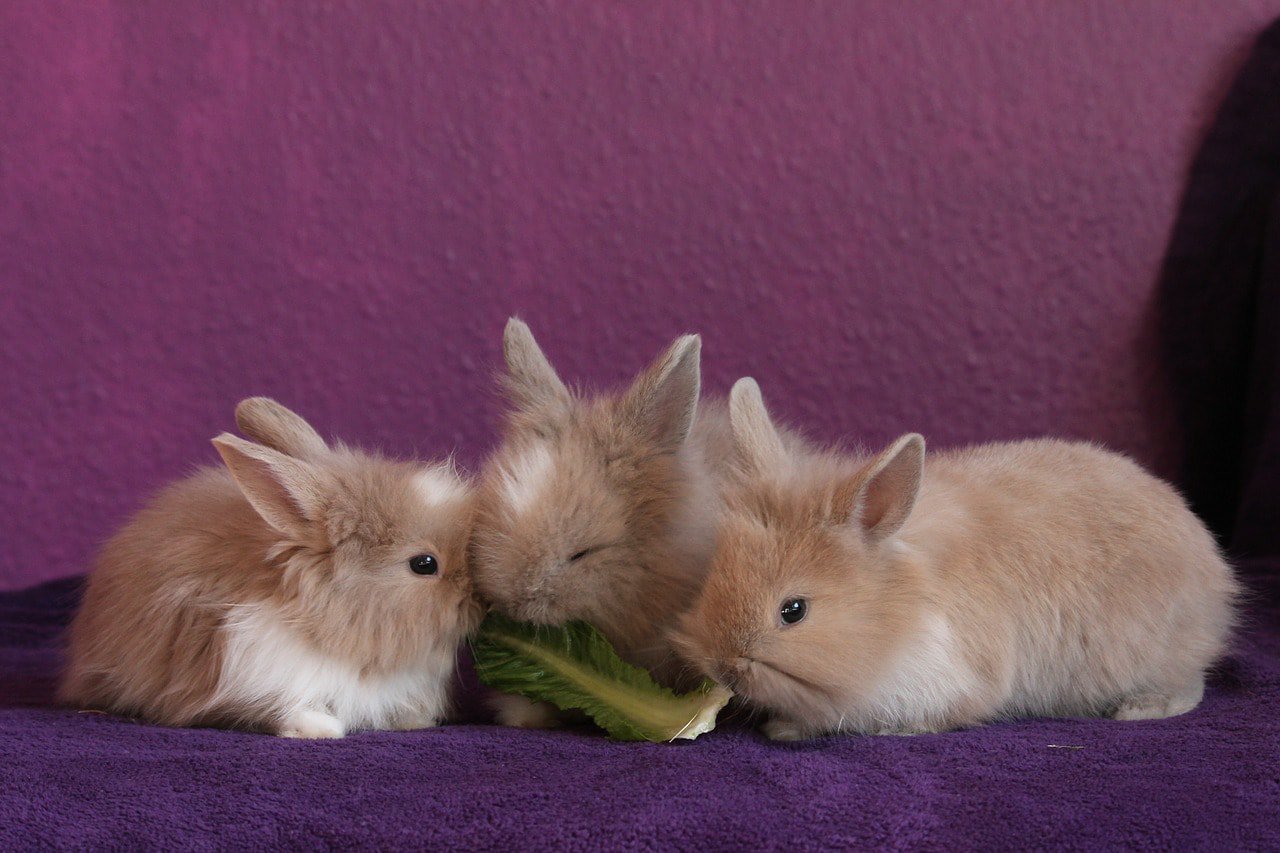
2. Helps Shed Their Teeth
A rabbit’s teeth are constantly growing, which means that bunny parents should help their pets shed them before they develop into problematic lengths. Unfortunately, the only way to help wear the teeth down is by allowing rabbits to graze on fiber. Plants and herbs contain the most fiber content.
3. Their Digestive System is Designed for Plants and Herbs
As mentioned earlier, rabbit’s gastrointestinal tract is designed to process enormous amounts of fibrous materials and limited proteins. A rabbit’s health largely depends on them having a healthy gut microbiome. They rely on the fermenting bacteria of their cecum to break down fiber and synthesize nutrients like B vitamins and volatile fatty acids, supporting overall and digestive health.
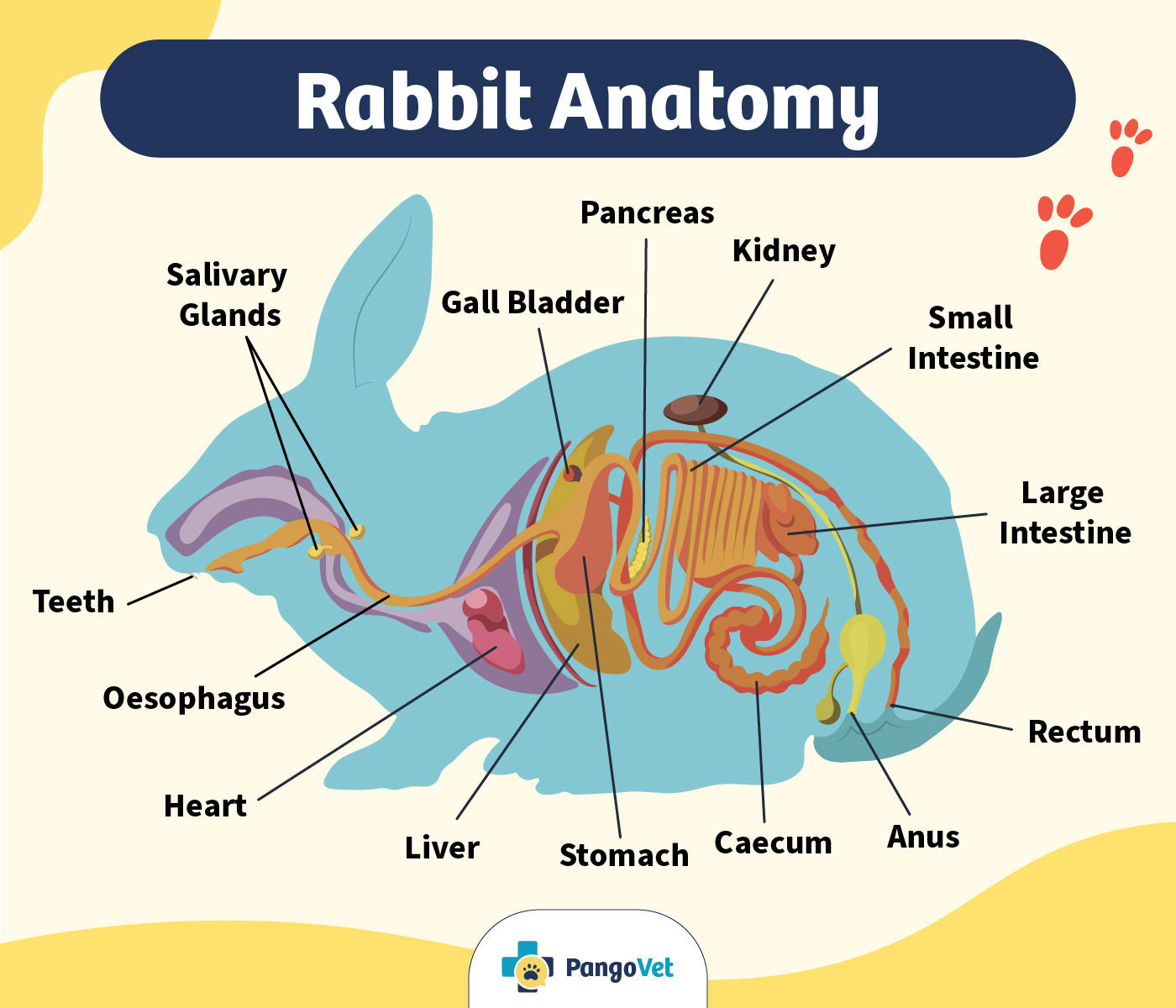

Can Rabbits Eat Meat?
Sadly, some female rabbits eat their offspring, although it is quite rare and not considered normal behavior in healthy, well-cared-for rabbits. Maternal cannibalism can occur if the mother feels threatened, is malnourished, or is a first-time, inexperienced doe under a lot of stress.
However, NEVER feed your rabbits meat because they are not built to eat such a diet. Their digestive system cannot digest meat, so if your bunny eats it, it will get sick from even a small amount. Meat will disrupt their gut flora, leading to dysbiosis, gastrointestinal stasis, diarrhea, or even enterotoxemia, a life-threatening condition often associated with Clostridium overgrowth.
Plus, bunnies require fiber to survive, components you may not find within meat diets in significant amounts. This diet is rich in fat and proteins that rabbits do not require to get in drastic quantities, dealing with this can also overload their liver.
This means that if you offer meat to your bunnies, you are seriously risking their health.
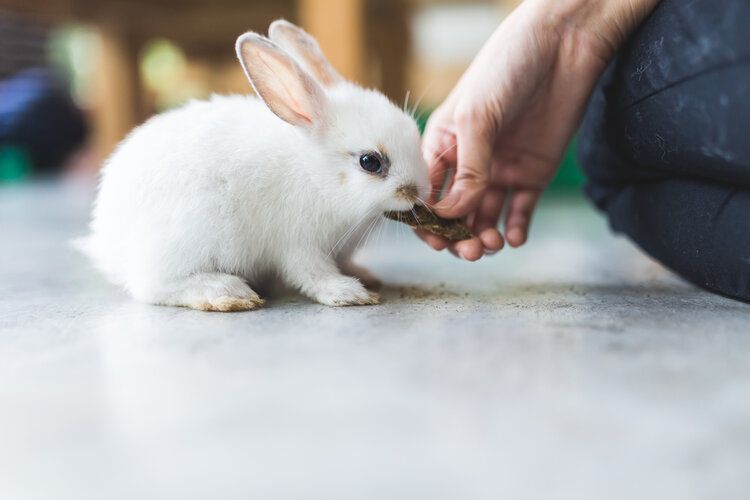
Rabbit Feeding Issues
Rabbits fend for themselves in their natural wild habitats and eat foods that enrich their dietary needs. However, under human care, without proper guidance and knowledge of their species, there is a risk of mistakenly feeding rabbits in a way that deprives them of certain vital nutrients.
When these creatures lack the nutrients they’ve evolved to require, like plants rich in fibers, it poses detrimental effects on their health.
These animals are prone to gastrointestinal problems resulting from inappropriate diets like limited fiber content, high protein levels, and too many carbs. Also, feeding your rabbit treats it’s not accustomed to can easily upset its digestive system.
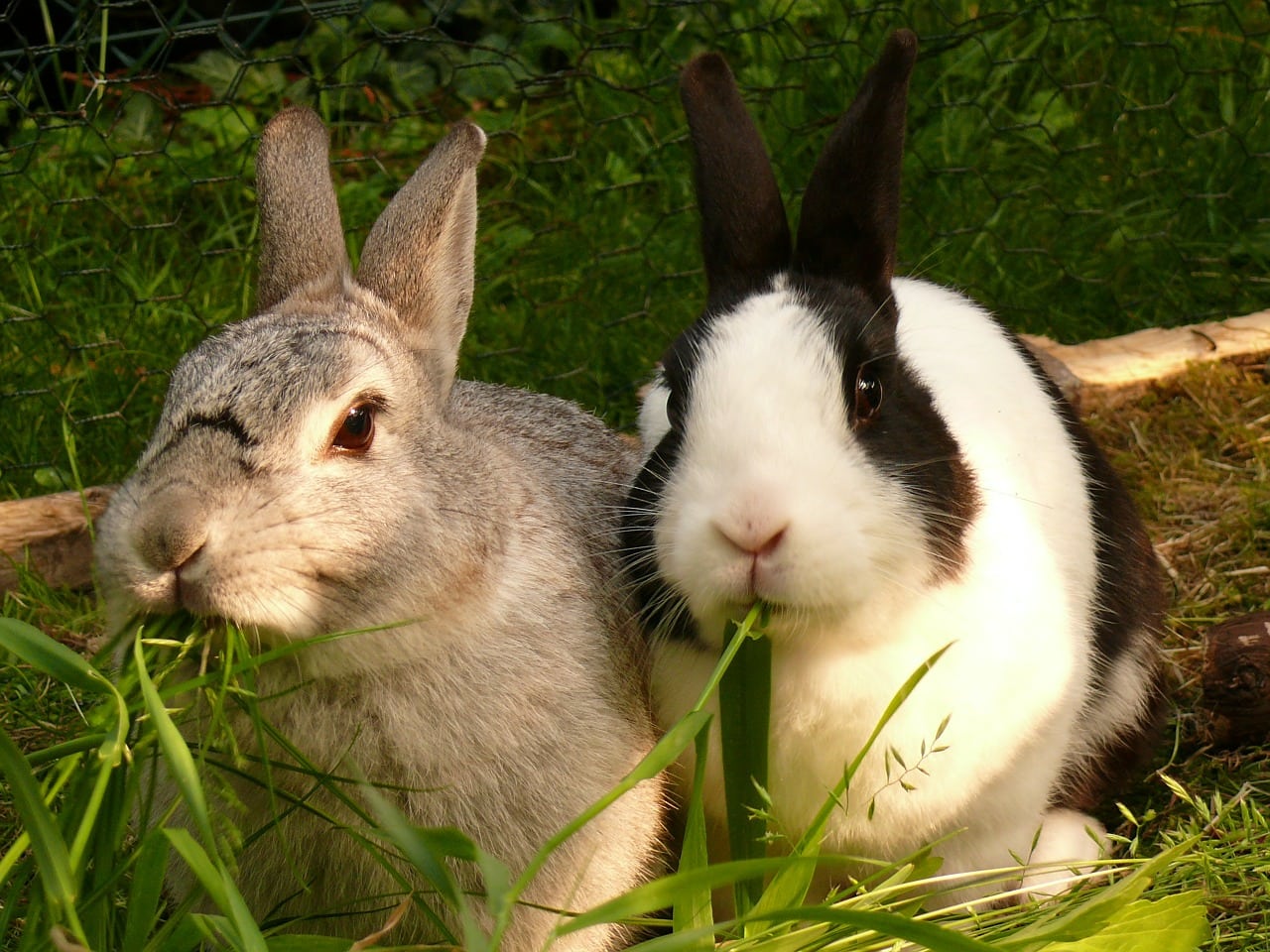
Health Problems Due to Improper Feeding
1. Enteritis
Young rabbits that eat too many carbohydrates may suffer from enteritis, which is intestine inflammation. Untreated enteritis can develop into enterotoxemia, which is caused by an overgrowth of pathogenic bacteria.
Worse still, another form of enteritis known as Mucoid enteritis can also develop, causing excess mucus secretion that can build up in a rabbit’s intestines.
2. Gastrointestinal Stasis Syndrome
Offering your bunny an inappropriate diet can trigger the GI Stasis syndrome, which often results in intestinal obstruction that can necessitate surgery.
3. Pregnancy Toxemia
Pregnant or lactating rabbits that do not get the proper nutrients required for their current state can develop pregnancy toxemia, also known as ketosis. It may result in seizures and has high fatality rates.

4. Kidney Disease
This condition mainly occurs if a rabbit’s diet consists of excess calcium. However, too much calcium can also cause urolithiasis, which involves the formation of urinary stones.

Rabbit Diet Essentials
A healthy rabbit diet should consist of lots of hay, fresh veggies, a variety of dark leafy greens, and high-quality pellets. Clean, fresh drinking water should always be available. You should consider fruits as “treats” and offer them in limited portions, no more than 5% of their diet.
1. Pellets
It’s vital to remember that the amount of essential rabbit diet you offer your pet varies with age. Pellets are necessary among young bunnies because they contain concentrated nutrients that these animals need in their developmental stage.
Provide nutritionally balanced pellets to your bunny, and they should consist not less than 18% fiber content. However, minimize pellets when your rabbits reach maturity and replace them with veggies and hay.
Too many pellets for mature rabbits causes obesity and other health problems, so this should not represent more than 5% of their diet.
2. Hay
Rabbits should have 24-hour supply of fresh hay! Alfalfa hay is suitable for bunnies less than seven months old, while adults can have timothy or oat hay.
Hay provides sufficient roughage that helps with dental health and gut bacteria balance. It also reduces hairballs and prevents intestinal blockage.
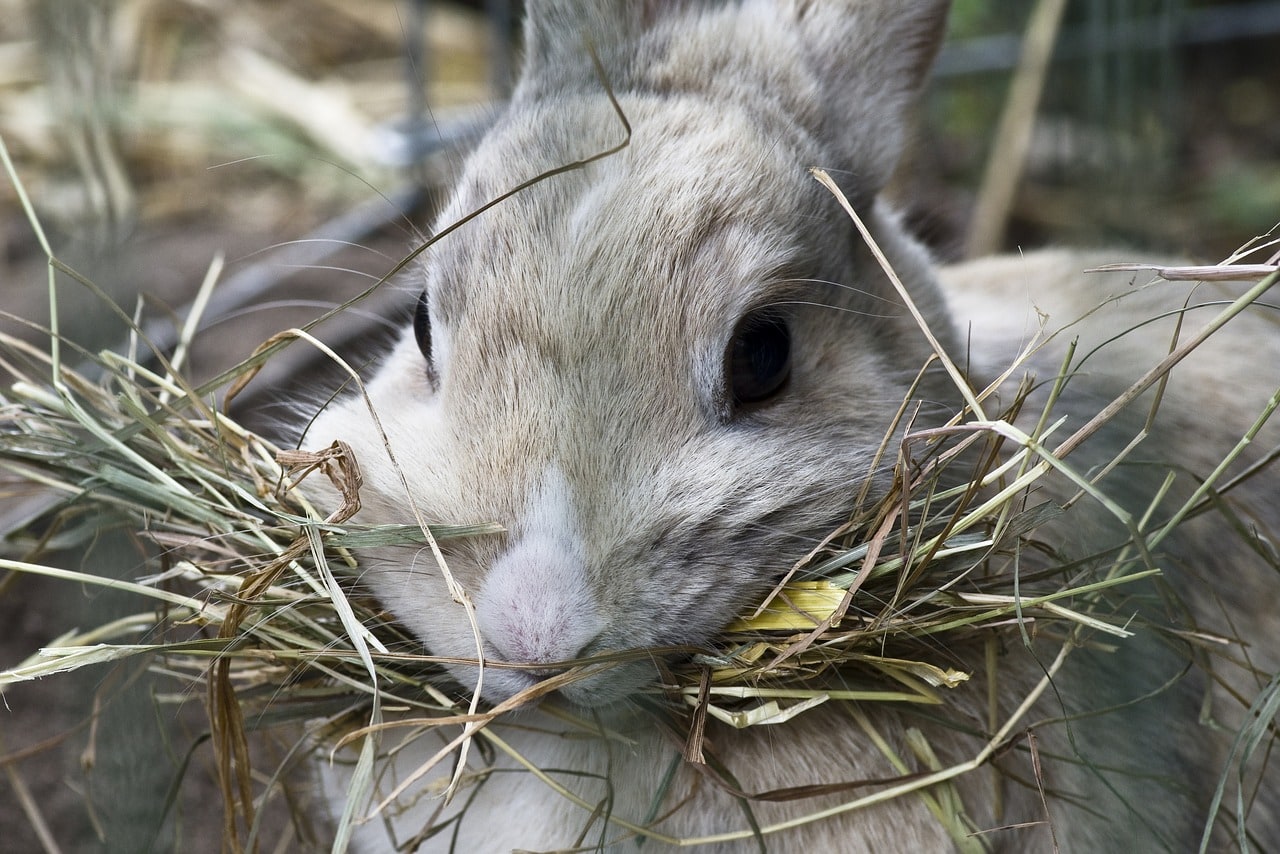
3. Water
Ensure your pets have fresh and clean water at all times. Change the water in the bottle every day and rinse the water containers at least once every week before adding more water.
4. Veggies
Any rabbit from 3 months old can have some vegetables, which offer fiber and vitamins. You can gradually introduce this diet plan one veggie at a time while watching for potential issues.
Eliminate those that cause stomach discomfort and diarrhea and continue providing differently colored leafy and root veggies. Such vegetables include:
- Carrots
- Basil
- Collard greens
- Broccoli leaves and stems
- Peapods
- Mustard greens
- Kale
- Celery
- Bok choy
- Parsley
- Spinach
- Lettuce (except iceberg lettuce)
- Peppermint leaves
- Mint
- Watercress
- Raspberry leaves
- Clovers
- Dandelion leaves
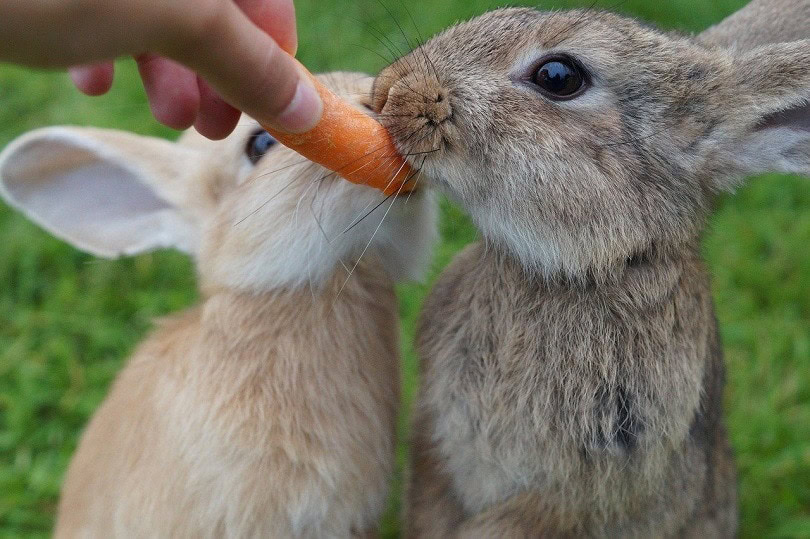
5. Treats
Treats like fresh fruits have high caloric contents than necessary, so provide them to your pet sparingly.
Bunnies can also digest other treats like barley and oats. However, they also have excess calories and carbohydrates that have been linked to gut dysbiosis and enteritis in bunnies.
- Berries
- Apples (without seeds)
- Grapes
- Pineapple
- Cherries (seedless)
- Banana
- Orange
- Papaya
- Watermelon
- Pear
- Plum
6. Chewing Items
Healthy chewing items like hay and vegetables can help maintain your bunny’s teeth and prevent them from overgrowing.
You can also include chew sticks, cardboard tubes, untreated gnaw wood, or untreated wicker.
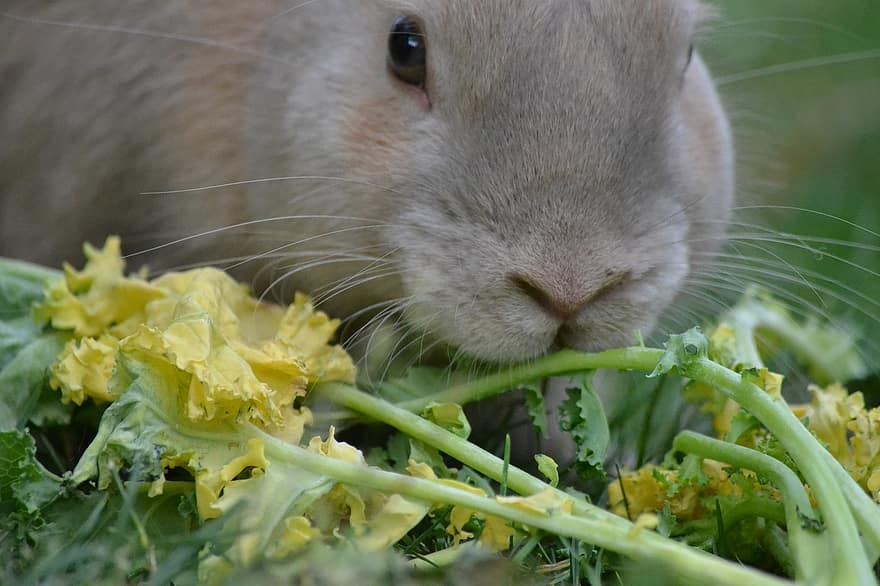

Foods to Avoid
Some foods can make rabbits ill, so you should not offer them to your bunny under any circumstance. They include:
- Human Treats
- Cereal
- Legumes
- Chocolate
- Crackers
- Corn
- Beans
- Nuts
- Sugar
- Yogurt
- Seeds
- Potatoes
- Iceberg lettuce
- Candy
- Bread
- Pasta

Summary
Evolution shaped a rabbit’s dietary needs, as high fiber diets have allowed rabbits to survive and thrive. Rabbit parents should consider this fact when raising their pets.
Ensure that you mimic a rabbit’s natural diet in the wild as much as possible because any deviation can result in severe health issues. Avoid meat and other animal-based ingredients at all costs.
You Might Also Be Interested In:
- Can Rabbits Eat Chicken Feed? Vet-Reviewed Facts & FAQ
- Can Rabbits Eat Kale? Vet-Approved Nutrition Facts & FAQ
- https://companion-animals.extension.org/enteritis-in-rabbits/
- https://www.ncbi.nlm.nih.gov/pmc/articles/PMC7258705/
- https://vethelpdirect.com/pet-health-library/condition-rabbit-pregnancy-toxaemia/
- https://wagwalking.com/rabbit/condition/urinary-tract-stones
- https://www.vetfolio.com/learn/article/nutrition-know-how-pet-rabbit-nutrition
Featured Image Credit: Pixabay
